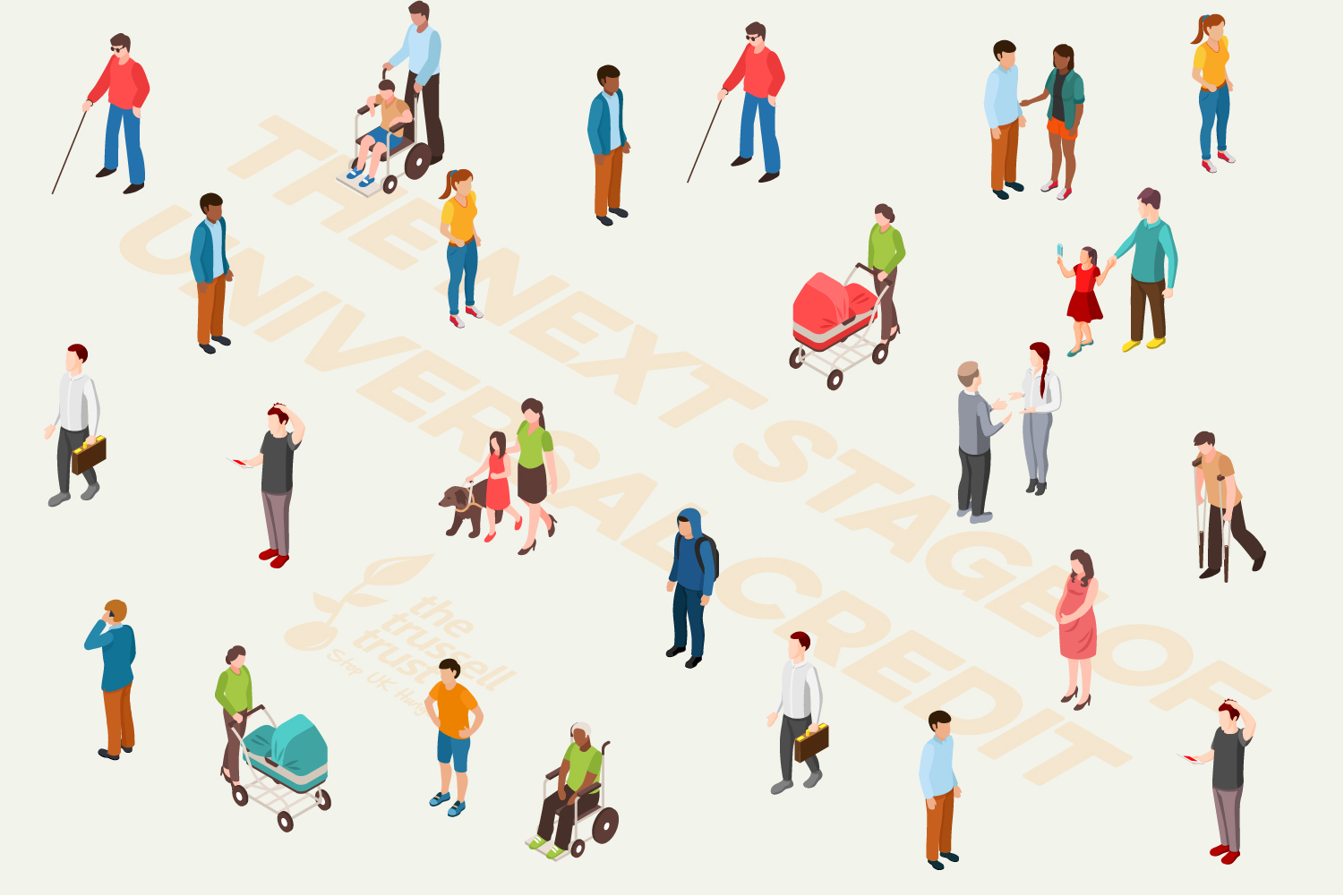 |
A blog post by Garry Lemon Director of Policy, External Affairs & Research |
This month, the Department for Work & Pensions provided more information about the changes they’re making to the next stage of Universal Credit. But what do these plans actually mean, and will they make a difference to people teetering on the edge?
Until now, only people making a new application have needed to apply for Universal Credit. The next stage, ‘managed migration’, is to move people still receiving help from the old benefits system onto the new one.
Universal Credit should be fighting poverty, not forcing people to food banks. But when we first saw the initial plans for this next stage last summer, we were worried that they would result in many more people needing food banks.
The government expected 3 million people to make a brand new claim for Universal Credit after getting a letter telling them to apply. The plans didn’t specify what support would be available, or if there would be any help for people who needed it (you can read more here).
We couldn’t sit by and watch this happen. With the evidence food banks were raising about Universal Credit from communities across the country, it was clear something needed to be done.
You might remember hearing lots in the news about Universal Credit in the closing months of last year. We were working alongside others to highlight how the government’s plans needed to change and why. Our network of food banks sees first-hand the impact an issue with Universal Credit can have on people, so were at the forefront of campaigning for change – both publicly through research and in face-to-face conversations with policy makers.
So did it work?
Well. There are two key things in the government’s new plans this month that show the concerns of food banks are not only being heard, but also acted upon:
- The number of people who can be moved over will be dramatically scaled back from 3 million to 10,000. This will be a pilot, so should help to make sure that Universal Credit can support everyone who needs help to move from the old system.
- People receiving severe disability payments (who we know are more at risk of needing a food bank’s help) won’t move onto the new system until after that pilot is complete and the next stage fully begins. This is really important, because it stops people moving onto Universal Credit and facing a drop in income – which would happen if they moved over this year before the financial protections the government has planned come into force.
A real difference has been made for thousands of people. But let’s be clear. There is much more to be done.
1.6 million people are still expected to make new applications for Universal Credit this year, in exactly the same way as we have seen up until now – and these changes won’t make a difference to them.
One of the key problems people will still face is waiting at least five weeks for a first payment. We know this leaves many people without enough money to cover the basics. Even when there isn’t a problem with the process of applying, many people are still referred to food banks struggling with debt, rent arrears and issues with mental health. The government knows this wait is too long, but the changes they’ve made won’t be in place for another 18 months, and they won’t help everybody.
Our benefits system was created to make sure proper support would be in place for each other when help was most needed. If Universal Credit is to do this much more still needs to be done. The next step must be for the government to end the five week wait.



